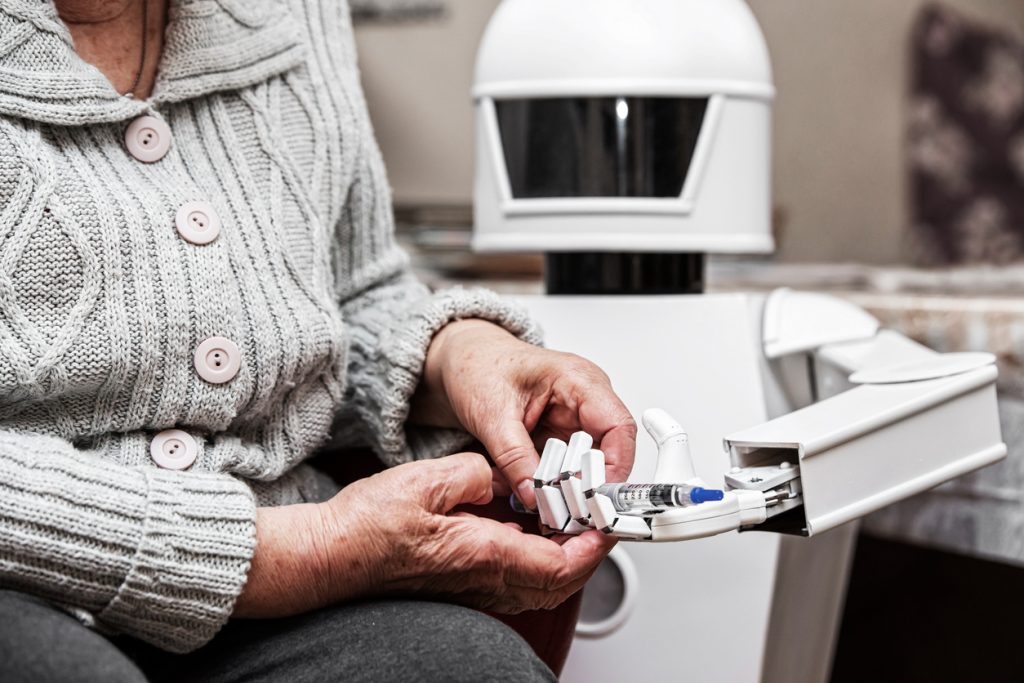In our hectic modern world, care workers play a crucial, yet often undervalued role. It can be more than a job; for many, it is a calling. If you are considering entering the profession, this article has details of what the job entails and the qualities best suited to it.
Responsibilities of a Care Worker
Their primary responsibility centres around assisting individuals – be it the elderly, those with disabilities, or others requiring special assistance – in their day-to-day tasks, ensuring they lead a comfortable and dignified life. Beyond the practical, care workers also provide invaluable emotional support, bridging gaps that technology or medicine alone cannot fill. As pillars in both the healthcare and social sectors, they form the bedrock of a compassionate and functioning society, ensuring that every individual, regardless of their circumstances, gets the attention and care they deserve.
Qualities of a Care Worker
Empathy and Compassion
If there’s one trait that defines a great care worker, it’s empathy. Understanding and resonating with clients’ emotions and experiences is fundamental. This quality ensures that each person they care for feels understood, respected, and cherished. The best care workers can establish a deeper connection with their clients that goes beyond purely physical aid.
Patience
Equally significant in the toolkit of a care worker is patience. As they often assist individuals with varied and complex needs, it’s inevitable that challenging situations will arise. Whether it’s navigating the recurring forgetfulness of a dementia patient or assisting a client with mobility issues in performing basic tasks, patience becomes the beacon guiding care workers through potential frustrations.
Cultivating this patience is an ongoing journey. A helpful tip many care workers employ is to engage in mindfulness exercises or regular breaks, reminding themselves of the broader picture and the profoundly positive impact they have on their clients’ lives- a genuine difference few jobs can match.
Good Communication Skills
Communication, both verbal and non-verbal, forms the foundation of all interactions in care settings. Clear communication ensures both the care worker and the individual receiving care understand each other’s needs, expectations, and concerns. It’s about more than just transmitting information; it’s about creating a bond of trust.
An effective communication technique often used in care is the ‘reflective listening’ method. Here, care workers repeat back what they’ve understood, ensuring that there’s no room for misunderstandings.
Another technique involves using open-ended questions, encouraging individuals to express themselves more comprehensively. Simple gestures, like maintaining eye contact or nodding, can also convey attentiveness and understanding.
Physical Stamina and Strength
Being a care worker is not just emotionally demanding but physically too. Daily tasks might involve lifting or transferring clients, assisting them with mobility, or engaging in repetitive actions that require endurance. Given these demands, maintaining one’s physical health becomes paramount.
Additionally, understanding and practising proper lifting techniques can prevent injuries. Yoga and stretching, too, can help in enhancing flexibility, ensuring care workers are less prone to strains and muscle aches.
Problem-Solving Abilities
Every day in the life of a care worker can present a new challenge. Perhaps it’s a piece of medical equipment that’s malfunctioning, or maybe it’s finding a way to calm an agitated client. Situations like these require quick thinking and adaptability.
To enhance these problem-solving skills, care workers can engage in exercises like brain games or puzzles. Joining workshops or discussion groups where they can share experiences and learn from peers is also beneficial. After all, in this profession, learning never stops, and every challenge faced is an opportunity to grow!
Professionalism and Integrity
In the realm of caregiving, professionalism isn’t just about adhering to standards; it’s about holding a deep respect for the people in your care. Clients and their families entrust care workers with their most personal moments and challenges. Upholding this trust requires unwavering integrity.
Maintaining confidentiality is essential. But it’s more than just confidentiality. Professionalism also encompasses punctuality, keeping up-to-date with training, and always ensuring the highest quality of care.
Continuous Learning and Adaptability
The world of caregiving, like many professions, constantly evolves. New research, methodologies, and tools are developed, all aimed at enhancing the quality of care. This requires care workers to remain adaptable and committed to continuous learning.
Engaging in regular workshops, online courses, or even informal knowledge-sharing sessions can make a vast difference in the services provided.
Care workers don’t just provide care; they provide understanding, support, and connection.
If you feel that you have the qualities above, we hope this article has given you the confidence to go forward and join the ranks of our nation’s caregivers. The silent heroes ensure that every individual receives the dignity, respect, and love they deserve.
Surewise offers specialist policies that protect home carers and personal assistants. Get a quote here today.








